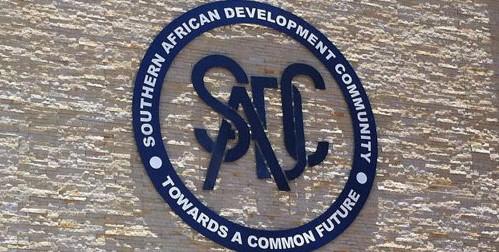News / National
Zimbabwe ignores Sadc energy protocol
28 May 2024 at 11:43hrs |
0 Views

MEMBER of Parliament for Dzivaresekwa constituency Edwin Mushoriwa has demanded answers for government's failure to ratify the Amended Sadc Protocol on Energy which is projected to improve development and efficient use of energy resources in Zimbabwe.
In June 2018, ministers responsible for energy made a comprehensive review and rationalisation of the governing instruments and policy guidelines for the Southern African Development Community (Sadc) energy sector, particularly the Sadc Protocol of 1996.
The Amended Sadc Protocol on Energy as well as annex 1 to the protocol were adopted at the 41st summit of heads of state held in Lilongwe, Malawi, in August 2021.
However, Zimbabwe is yet to ratify the protocol amid its energy crisis nationwide.
"What I would have wanted the honourable minister [of Energy and Power Development] to explain to this august House is why, as a country, it took us three years to seek ratification from Parliament. Why were we not one of the first countries to ensure that we seek the approval of this august House, given the nature and extent of the energy crisis that we face as a country?'' asked Mushoriwa.
According to the International Trade Administration report of 2024, Kariba Dam and the Hwange coal-fired power station operate at one-third of their capacity, largely due to aging equipment.
The Kariba power plant was limited to generating 214 megawatts up to March 2024 due to the lake's low water level.
Hwange and Kariba generate a combined1 638MW.
To cater for the demand for electricity, the country is importing energy from South Africa, Mozambique, Zambia and Botswana.
This has worsened power cuts in Zimbabwe with household and industries going for 12 hours without electricity.
In November 2023, Zimbabwe was among other 11 Sadc members states that were yet to ratify the Protocol on Industry since its endorsement in 2019.
According to the International Labour Organisation's report of 2024, Zimbabwe has not ratified 49 Sadc conventions and four protocols which are already in force.
"We are equally worried that the delay by the government to sign such important protocols not only for this particular one on energy but all other protocols, shows reluctance of the Government to abide by the rules of the game. Therefore, when it comes to Parliament, it brings confidence that our government is ready to also be bound by multi-lateral regulations, protocols and principles,'' said Shakespear Hamauswa, MP for Warren Park.
A protocol is a legally binding document agreed to by member states, committing them to objectives and specific procedures. Two-thirds ratification of a protocol by members states gives it formal consent, making the document officially valid. Any member state that did not initially become part of the protocol can accede to it later.
The Amended Sadc Protocol on Energy is a revision of the 1996 version which became outdated and was failing to capture some of the changing dynamics in the energy sector at regional, continental and global levels such as the push towards greater uptake of renewable energy sources and technologies, and the impact of the climate crisis.
In June 2018, ministers responsible for energy made a comprehensive review and rationalisation of the governing instruments and policy guidelines for the Southern African Development Community (Sadc) energy sector, particularly the Sadc Protocol of 1996.
The Amended Sadc Protocol on Energy as well as annex 1 to the protocol were adopted at the 41st summit of heads of state held in Lilongwe, Malawi, in August 2021.
However, Zimbabwe is yet to ratify the protocol amid its energy crisis nationwide.
"What I would have wanted the honourable minister [of Energy and Power Development] to explain to this august House is why, as a country, it took us three years to seek ratification from Parliament. Why were we not one of the first countries to ensure that we seek the approval of this august House, given the nature and extent of the energy crisis that we face as a country?'' asked Mushoriwa.
According to the International Trade Administration report of 2024, Kariba Dam and the Hwange coal-fired power station operate at one-third of their capacity, largely due to aging equipment.
The Kariba power plant was limited to generating 214 megawatts up to March 2024 due to the lake's low water level.
To cater for the demand for electricity, the country is importing energy from South Africa, Mozambique, Zambia and Botswana.
This has worsened power cuts in Zimbabwe with household and industries going for 12 hours without electricity.
In November 2023, Zimbabwe was among other 11 Sadc members states that were yet to ratify the Protocol on Industry since its endorsement in 2019.
According to the International Labour Organisation's report of 2024, Zimbabwe has not ratified 49 Sadc conventions and four protocols which are already in force.
"We are equally worried that the delay by the government to sign such important protocols not only for this particular one on energy but all other protocols, shows reluctance of the Government to abide by the rules of the game. Therefore, when it comes to Parliament, it brings confidence that our government is ready to also be bound by multi-lateral regulations, protocols and principles,'' said Shakespear Hamauswa, MP for Warren Park.
A protocol is a legally binding document agreed to by member states, committing them to objectives and specific procedures. Two-thirds ratification of a protocol by members states gives it formal consent, making the document officially valid. Any member state that did not initially become part of the protocol can accede to it later.
The Amended Sadc Protocol on Energy is a revision of the 1996 version which became outdated and was failing to capture some of the changing dynamics in the energy sector at regional, continental and global levels such as the push towards greater uptake of renewable energy sources and technologies, and the impact of the climate crisis.
Source - newshawks
Join the discussion
Loading comments…


































